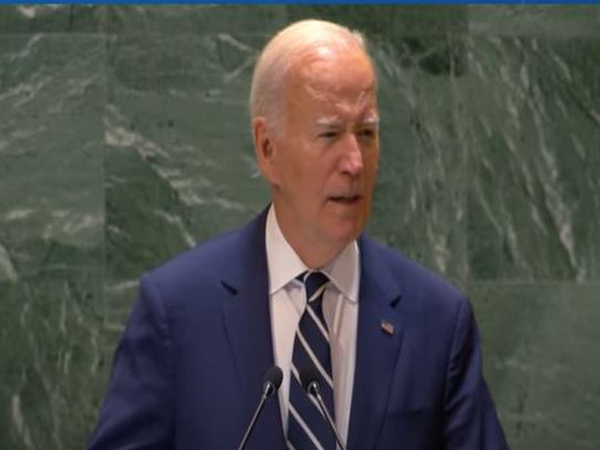Biden Stresses Diplomatic Solutions Amid Middle East Conflict at UN Assembly
US President Joe Biden addressed the dire humanitarian crisis in Gaza and the need for diplomatic solutions to the escalating Middle-East conflict during the 79th UN General Assembly. He condemned Hamas' attack and emphasized a ceasefire plan with Qatar and Egypt, urging a two-state solution for lasting peace.

- Country:
- United States
US President Joe Biden expressed deep concern over the escalating conflict in the Middle East during the 79th UN General Assembly, vividly describing the dire humanitarian situation in Gaza where 'innocents are going through hell.' Biden also stressed the need to address violence against Palestinians in the West Bank. He referred to the October 7 attack involving thousands of armed Hamas terrorists, which led to over 1,200 deaths.
'The world must not flinch from the horrors of October 7,' Biden emphasized. He described the attack as one in which armed Hamas terrorists invaded a sovereign state, slaughtering over 1,200 people, including 46 Americans, with some taken hostage. 'Too many families are dislocated, facing a dire humanitarian situation,' said Biden, underscoring that a diplomatic solution is crucial to end the conflict. Biden mentioned efforts with Qatar and Egypt to broker a ceasefire and hostage deal, endorsed by the UN Security Council.
Biden also called for a two-state solution to address rising violence against Palestinians and ensure security for both Israel and Gaza. Meanwhile, UN Secretary-General Antonio Guterres raised concerns about global conflicts, particularly between Russia and Ukraine, and tensions in the Middle East. He warned that Lebanon is 'at the brink' amid clashes between Israel and Hezbollah, emphasizing that no act of terror or collective punishment can be justified.
The 79th session of the General Assembly, running from September 24 to 30, features the theme 'Leaving no one behind: acting together for the advancement of peace, sustainable development, and human dignity for present and future generations.' The session highlights the need for international cooperation to address climate change, poverty, and inequality amid ongoing global conflicts and health crises.
(With inputs from agencies.)










